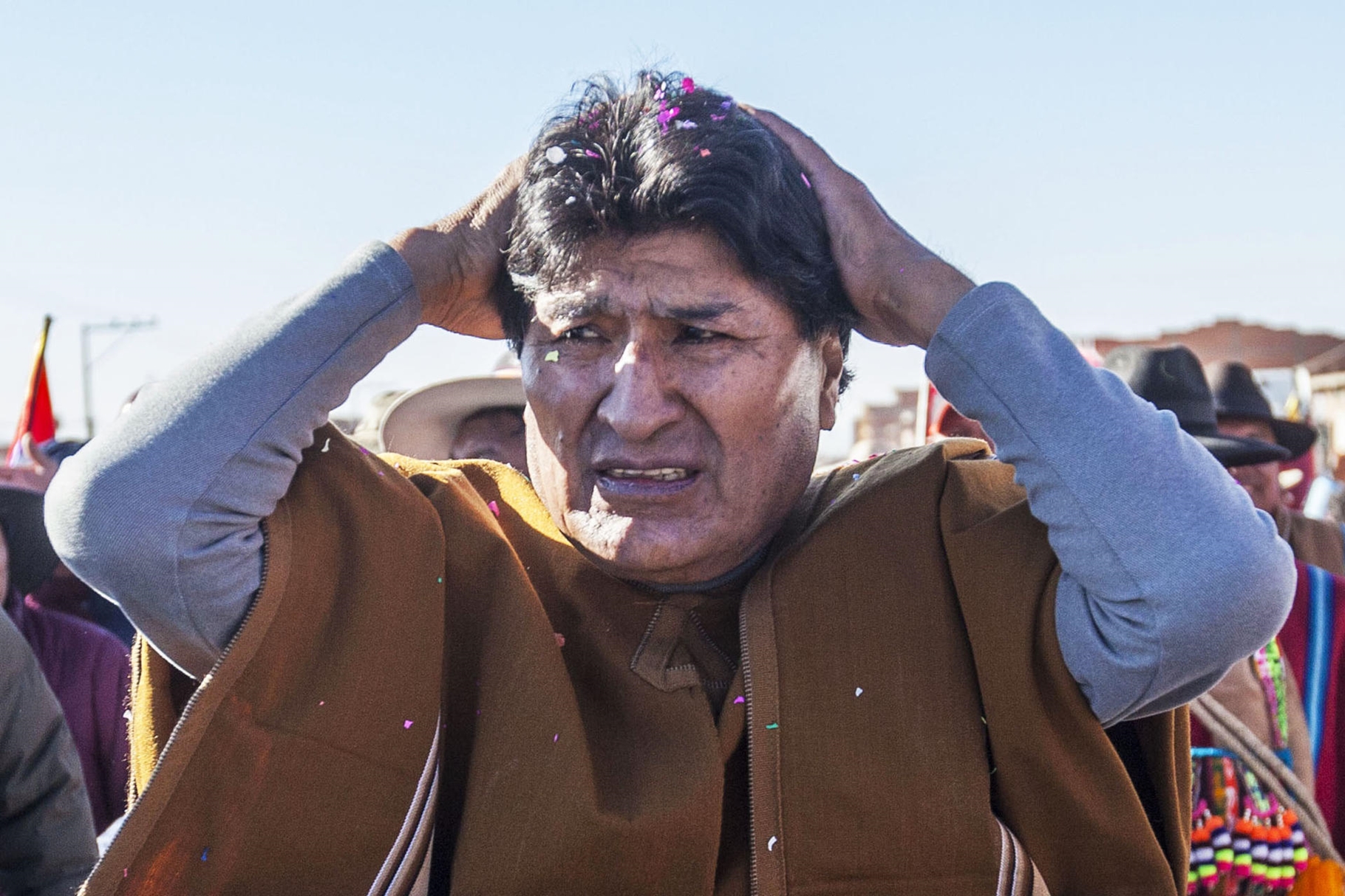The former president of Bolivia Evo Morales is in the eye of a judicial hurricane after a prosecutor was fired because, according to her, “she was going to capture” the former president for a case of “human trafficking” and said arrest was “deactivated” by a judge one hour before his execution.
Morales’ followers allege “political persecution” against him with the revelation of the new investigations and assure that it is a plan by Luis Arce’s government to prevent the former president from running as a presidential candidate in the 2025 elections.
Some ministers of President Luis Arce affirm that they received several complaints of “violations” and cases from Morales’ past, and warned that they will investigate it with all the resources at their disposal.
Below are the keys to the investigations involving the former Bolivian president:
The dismissal of the prosecutor and the deactivated arrest warrant
Sandra Gutiérrez, the now former departmental prosecutor of Tarija, surprised the Andean country on Wednesday night with a complaint that she was fired for wanting to capture Evo Morales in a “human trafficking” case.
According to Gutiérrez, the attorney general, Juan Lanchipa, fired her and did not let her enter his office on the day he would carry out the capture of Morales and after telling her that “that case is not being discussed.”
For her part, the judge of the Santa Cruz region who “deactivated” the arrest warrant, Lilian Moreno, reported to the Bolivian media that she “received pressure” to do so and assured that the case “is not closed.”
The complaint, an alleged son and the “Evo Generation”
The complaint for which Morales was going to be captured was leaked to the media, and it indicates that when he was president between 2014 and 2015 he created a “youth guard” made up of young people aged 14 and 15, which he named “ Generation Evo”.
According to the document, Morales would have signed as the father the birth certificate of a baby born in 2018, when the mother, who belonged to the “youth guard,” was 16 years old.
The victim reported the rape of the former president when she was 15 years old and was part of the “Evo Generation.” The complaint also says that the parents of the then minor would have “profited” to leave her at the disposal of the former president.
Argentina takes away his refugee status
A few hours before Evo Morales’ investigation was revealed, Javier Milei’s government removed his refugee status in the country, which former Peronist president Alberto Fernández granted him in 2019.
Morales moved to Argentina after the political crisis of 2019, which he and those close to him described as a “coup d’état” against him in the failed elections of that year.
However, the opposition described the crisis as a “self-coup” to manipulate the elections because the ruling Movement towards Socialism party did not obtain the expected votes for Morales’ third re-election.
An attorney general in question
After the dismissal of Prosecutor Gutiérrez became known, the Attorney General, Juan Lanchipa, was questioned and criticized by the Arce government and the opposition.
Lanchipa, who ends his term this month, has been accused in the past of being ‘evista’ or related to the ruling faction of Evo Morales, however, he assured that he fired the prosecutor for acts of “negligence” in the investigation of the former president and who never ordered “to paralyze the capture.”
Several deputies from the MAS and the opposition announced that they will denounce Lanchipa for protecting Morales, while the Minister of Government (Interior), Eduardo del Castillo, questioned this and requested a report on the actions of the attorney general.
The fight for the official MAS
Arce and Morales are fighting a long battle for control of the MAS and the Bolivian Executive, and since 2021 they have also been separated by a fight for the party’s presidential candidacy for next year’s elections.
The complaint of “human trafficking” was filed three days after Morales and thousands of his followers arrived in the city of La Paz after marching 187 kilometers for 7 days in the highlands.
At the end of this initiative, which Morales called the “March to Save Bolivia” but which the government called the “Death March,” the former president gave an ultimatum to President Arce, and said that “if he wants to continue governing” he had to fire several of his ministers, whom he described as “corrupt, drug traffickers.”
Morales’s previous research
The most recent case against Morales was for influence peddling in which his ex-girlfriend Gabriela Zapata was accused of using the properties of the Social Management Unit of the Ministry of the Presidency to make illegal deals with businessmen. Zapata was sentenced to 10 years in prison.
The opposition denounced Morales of being involved, but he always rejected it and Parliament, controlled by his party in 2017, concluded in an investigation that this crime did not exist.
Likewise, several cases against Morales were opened by the interim government of Jeanine Áñez (2019-2020), including one for statutory rape and relations with minors.
The accusation was based on photographs and cell phone messages with a minor who supposedly presented an unexplained migratory flow to Mexico and Argentina, countries where Morales was when he left the Presidency.
However, that and the other cases were dismissed or closed after the return of the MAS to power and Morales to Bolivia at the end of 2020.
Keep reading:
• Evo Morales is investigated in Bolivia for sexual abuse against a minor
• Edmundo González affirms that he will take office as elected president of Venezuela
• Carter Center shows the electoral records that demonstrate González’s victory over Maduro
